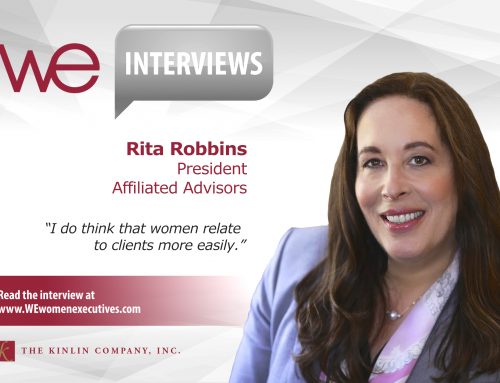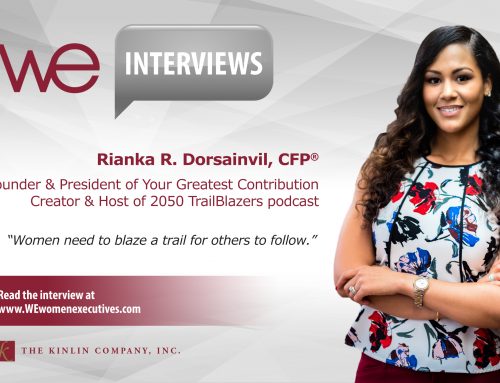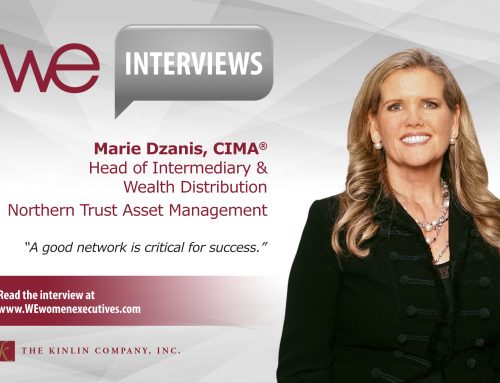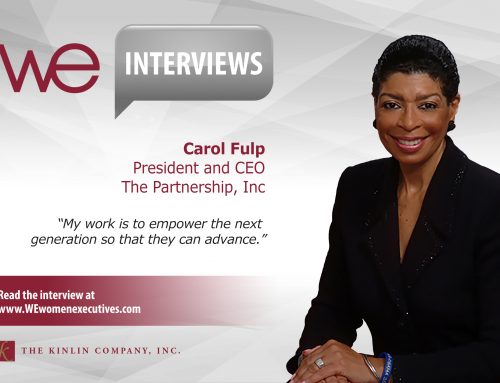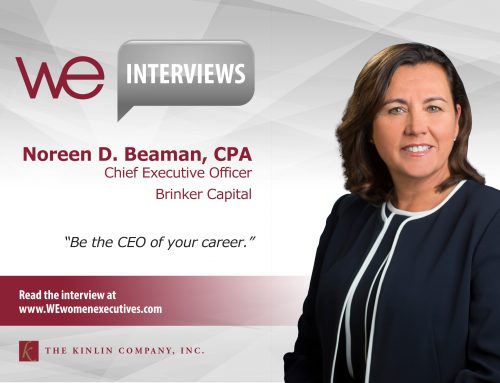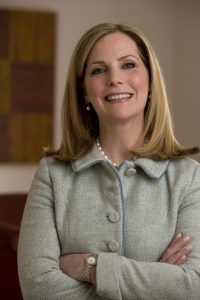 Merrillyn J. Kosier
Merrillyn J. Kosier
Executive VP & Chief Marketing Officer
Mutual Funds at Ariel Investments
Merrillyn Kosier’s numerous titles, roles and responsibilities paint the portrait of an executive who has managed to squeeze 36 hours from a 24-hour day.
As Executive Vice President at Ariel Investments and Chief Marketing Officer for the Mutual Fund business, Kosier oversees the marketing of six funds with roughly $9 billion in assets under management. She is responsible for Ariel’s branding, advertising, collateral, press relations and website, as well as the firm’s business relationships with third-party intermediaries. Additionally, Kosier is a trustee of Ariel’s mutual fund board.
I recently sat down with her to learn more about what motivates her and how, given her fervent belief that “multi-tasking hurts performance,” she successfully manages such a demanding career while still finding time to give back to her community.
In Part I of our conversation, Kosier discussed the genesis of her career in financial services and the principles that guide her.
It was serendipity
Kosier has an MBA from Loyola University and an undergraduate degree in marketing from Andrews University, so I was curious to learn what had drawn her to the financial sector. Her response was surprisingly candid.
“Quite honestly—it was serendipity,” Kosier confesses. “My decision wasn’t about finding a great career in the financial services industry; it was about finding a great career at a great company with great people and a great learning culture. I was very young at the time, just 22 years old. I knew I had a lot to learn and experience, and I also wanted to live and work in a big city. I communicated my master plan to my parents, and they gave me a one-way ticket to Chicagoand said, ‘You’ve got to make it—that’s it, no safety net. And, don’t forget to make us proud.’
“I flew to Chicago, and lived with a college friend and her mother for a few weeks. I sent my resume everywhere you could imagine, but mostly to banks and other financial services companies. Chicago had a strong reputation for financial services, with companies such as Northern Trust, Bank of America, First Chicago, Chicago Board of Trade and the Chicago Mercantile Exchange. I thought the training in this field would be pretty good and that the starting salaries might be better than at an ad agency. I was eager to be on my own, so I made finding a job my only job. No playing, no relaxing, no partying. I was totally focused and obsessed with finding a dream job.
R.J. O’Brien & Associates responded to my resume and invited me in for an interview. I was a little intimidated at first because Mr. O’Brien had a big reputation as a founding member and former chairman of the Chicago Mercantile Exchange. It seemed everyone in Chicago knew him but me! But I could tell right away he was a nice man with a big heart. He had five children, some of whom worked in the business, and I think he may have felt responsible for me. He and his team taught me everything about the futures business. I was a runner for the firm during the day. I would then head to the office and work on trade reconciliations. In the evenings, I would conduct cold calls with the sales team. Of course, my first sales call was to my father, who invested $5,000 in one of our funds! I spent any free time studying and acquiring my licenses.
“In October 2014, R.J. O’Brien & Associates (RJO) celebrated their 100th year in business. They are the oldest and largest independent futures commission merchant (FCM) in the United States, and are considered one of the last boutique firms in the industry. I am so happy for their success. RJO was good for me—long days, but invaluable training and experience.”
Kemper Financial Services: the Fidelity of the Midwest
“Back in the dark ages, newspapers had a robust section for job opportunities. I saw an ad in the paper for Kemper Financial Services, which was regarded as the Fidelity of the Midwest. The company was building a large marketing communication department and an in-house agency for all of its product lines. I had majored in marketing and love this field of study. Contrary to popular opinion, marketing is not the same as sales, and at RJO, I was doing a little marketing and a lot of sales. I liked it, but I didn’t love it. So I interviewed at Kemper Financial Services and was hired as a Marketing Communications Manager.
“At Kemper, we were responsible for different product lines: money market funds, insurance products, Unit Investment Trusts, load funds, and so on. It ran the gamut, and I learned a lot. We oversaw print and broadcast advertising, sponsorships, shareholder materials, collateral, sales materials for Kemper wholesalers, training materials, press releases—you name it! I formed great friendships at Kemper that I still have today. I was there for 10 years and really loved my job, the firm and the people. So, did I have a grand master plan to work at Kemper? No. My simple plan was to work in marketing at a large firm with great people and gain as much experience as possible across different strategies and product lines. I was about 24 or 25 years old at the time and knew this kind of exposure was really important to my development.”
If it’s not broken, break it
While it quickly became evident that Kosier is inherently self-motivated and always looking for ways to increase her knowledge base, I couldn’t help but wonder if she had benefited from the guidance of any great coaches or mentors along the way. When I asked, she immediately started naming names.
“When I joined Wanger Asset Management (WAM), the advisor to Acorn Funds, in 1993, Ralph Wanger was the Chairman and President, and he was known as the “Imperial Squirrel.” He had built a track record of having the best-performing small-cap fund in the country since 1970. It would be an understatement to refer to Ralph as simply smart—he is extraordinarily talented and razor sharp, with great vision and prioritization. And many people don’t know about his great sense of humor!
“I was responsible for marketing and shareholder services for WAM and reported directly to Ralph. I am so grateful to have had the opportunity to work for such an industry giant. Ralph was very inspiring and generous with his time in teaching me the stocks in the portfolio. He wanted to make sure I knew the portfolio holdings so that I could tell the Acorn story to the press, our shareholders and prospects. If he was walking into a meeting or conducting a conference call, he’d say, ‘Merrillyn, come with me. I want you to hear this conversation.’ He always put his calls on speakerphone so I could hear both sides of the call. Now, if you were to ask Ralph if he was a great mentor or coach, he would probably shrug. But I will tell you: He was a wonderful mentor to me. We also worked together on all shareholder communications, including quarterly reports. He took great pride in communicating with shareholders and never once asked someone else to do this work. His commitment to shareholders really stuck with me and made a lasting impression.
“Ariel’s Chairman, CEO and Chief Investment Officer, John W. Rogers, Jr., is also a tremendous coach and mentor. He loves teaching and sharing best practices. He has truly created a culture of learning. He’s constantly asking, ‘What can we do better? What have we left on the cutting room floor? If we had to do it over again, would we do this differently?’ He challenges us to think independently and to exercise precision in our work. When I think about it today, I realize Ralph had his own version of this and would say, ‘If it’s not broken, break it.’ Ralph and John have a lot in common; both are strong entrepreneurs who constantly challenge the norm or question assumptions. I am absolutely certain this independent streak is what has helped them build their strong performance records and has contributed to their success. Clearly, I am drawn to entrepreneurs. I have enormous respect for people who can build something from nothing—true visionaries who have the ability to communicate their ideas to others and maintain high standards. It’s very inspiring and motivating to see great leaders at work on a daily basis.
Maintain your discipline
Kosier operates in a highly competitive environment; yet in the course of our conversation, it quickly became clear that she has worked with some of the most illustrious names in the business. What did she do to make herself an indispensable part of those teams? Kosier quickly volunteered five principles that guide her:
1. Any job worth doing is worth doing well.
“My father was an aeronautical engineer at Cape Canaveral in Florida and a member of the missile launch team. The space program was a big part of my childhood. When I tell you my dad was a fanatic about details, I’m understating it by a country mile. He was focused and detail-oriented. I learned from him that any job worth doing is worth doing well. For example, he taught us how to cut the lawn so the rows were at an angle, and the hedges had to be just so. Then after we were done with the lawn, he showed us how to clean all the tools so they would last and not rust. And don’t get my mother started on the amount of time he would take to prep a room before painting! I come from a family of four girls—no brothers—so my mom and dad taught us that there were no gender roles. We mowed, cleaned, washed cars and babysat. I learned a great deal from my mother as well. I used to tease her that she would have made a great leader in the Army. She grew up in the Depression, so her sense of work ethic and stamina are simply incredible—she literally can outwork anyone! And thank God, because she’s been battling cancer for many years. She truly believes anything can get done if you apply yourself. “
2. Prioritize your work.
“I’ve learned through experience that your day can get hijacked unless you focus and tell yourself, ‘I’ve got to get this stuff done, no matter what.’ And it’s not just getting the job done; it’s getting it done right. I honestly believe multitasking is a trap. Understanding how to approach work is a real advantage. A lot of people don’t know where to start. When you have a big or complicated work assignment ahead of you, you must stay calm, think it through and then dig in. Sometimes starting off is the hardest thing to do.”
3. If you touch it, you own it.
“When I began working in this field, most of the firms and business lines were run by men. There were virtually no women in the corner offices. So, early on, I wanted to see how high I could go and whether I could crack the ceiling at Kemper. I knew I couldn’t shatter it, but could I crack it? I worked extremely hard and went to graduate school at night. At a fairly young age, I was promoted to Vice President. At the time, it was a big deal. Now, I look back and realize I set the bar too low.
“I remember working until 9:00 p.m. on Friday nights. All my friends wanted me to go out partying with them. My response was always, ‘Sorry, but I’ve got to get this done, because I don’t want it hanging over my head this weekend.’ I believe having a strong sense of responsibility, along with consistent follow-up, will differentiate you from the crowd. I think this sense of responsibility came from my parents. Mellody Hobson, Ariel’s President, says ‘If you touch it, you own it.’ This is an invaluable philosophy that epitomizes responsibility.”
4. Think like an owner.
“I don’t think it’s an accident that I have gravitated toward entrepreneurs—people who take responsibility, have great vision and retain a strong work ethic. When I was in college, my parents started their own company that became a family business. My sisters and I all worked in the business during the summers and my two older sisters worked there full-time for many years. I think being exposed to the ups and downs of a family business at a young age was a game changer for me. I was acutely aware that a small business can be fragile and tough at times. You don’t want to disappoint the people who count on your work, especially your clients. In my line of work, my clients are shareholders. They have placed their trust in us to professionally manage their hard-earned money, and I don’t want to let them down.”
5. Work is not enough.
“Don’t underestimate the power of hard work, but work is not enough. It is important to think about the work, which means you need to step away from time to time. Time away from work can give you a fresh perspective and help you generate new ideas. When you’re in it, it’s hard to think about it because you’re just trying to get it done. So it’s really important to step back and gain perspective. Over the years, I have held our strategic planning sessions outside the office. I have found that when I get away from my routine, new ideas begin to take shape.
“It took me a while, but I now understand balance and the gift of being still. I love to work—after all I am my mother’s daughter, but I also know that I can’t be a good thinker if I am just doing the work. I’ve got to think about the work.”

